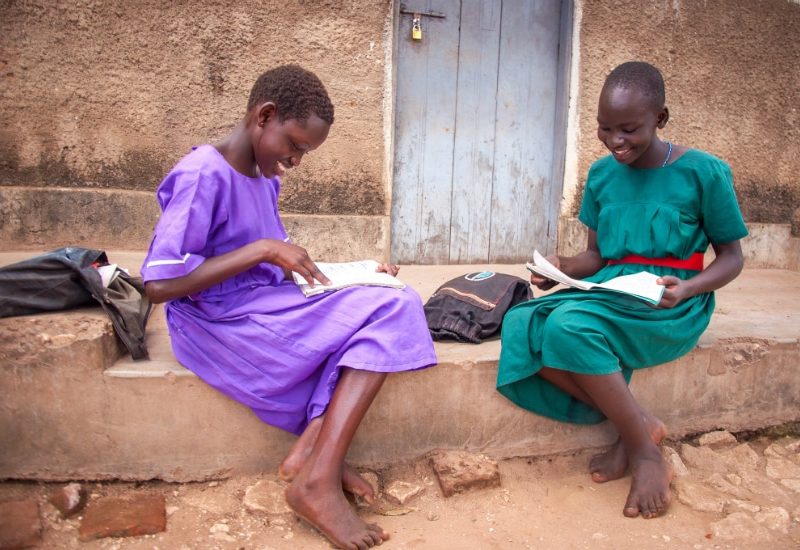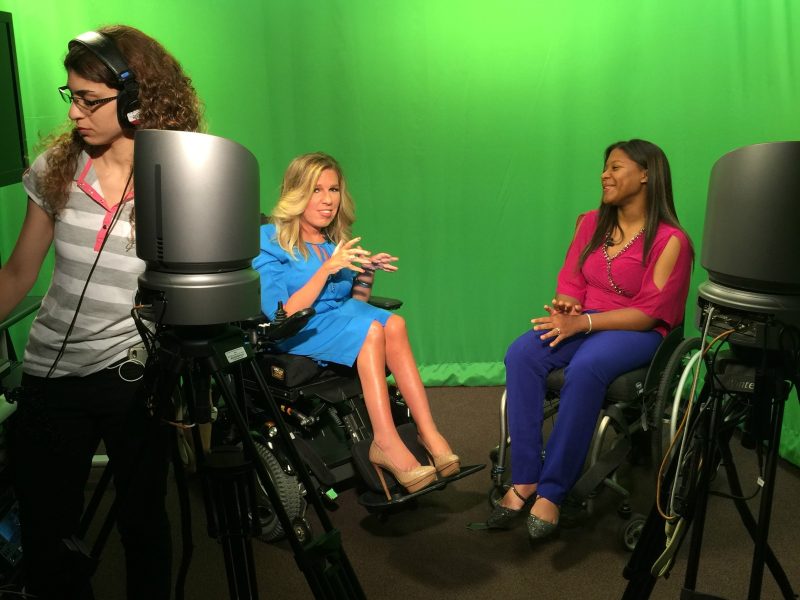LOS ANGELES (WOMENSENEWS)—Hopes for an Equal Rights Amendment, or E.R.A., have long been kept alive by a stalwart group of diehards often working at the grassroots.
But currently it's also got the help of some charismatic and high profile women, including Hollywood stars, who are trying to turn the klieg lights on it.
“With the upcoming 2016 election, we need to intensify the conversation around women's issues and compel our lawmakers to protect the basic civil and human rights of American women by passing the E.R.A.,” Patricia Arquette says on a Change.org petition that calls for passage of the E.R.A. “It is time that we finally make this happen for ourselves, our daughters and for the future of our nation.”
Arquette's campaign has attracted almost 90,000 signatures and the support of A-list actresses Reese Witherspoon, Gillian Anderson (“The X-Files”), Jane Leeves (“Frasier”), Marika Dominczyk (“The 40 Year-Old Virgin”) and Rose McGowan (“Charmed”), among others.
I'm signing because it's about bloody time! Join me: https://t.co/ACEpnfgHV7 #ERA #EqualMeansEqual @Change pic.twitter.com/p37Jcu59t2
— Gillian Anderson (@GillianA) February 29, 2016
Woman STILL earn between 44-79% of what men earn. The wage gap is just one of many reasons we need #ERANow. https://t.co/W7irrZ0mHE
— Jane Leeves (@JaneLeeves) March 22, 2016
The E.R.A. is an amendment to the U.S. Constitution first introduced to Congress in 1923 that would guarantee equal rights to every individual regardless of sex. Introduced many times, it came most close to being ratified in 1982, when it fell short by three states of the 38 needed.
Supreme Court Justice Ruth Bader Ginsburg, hugely popular with women in the country, adds wind to the sails of the E.R.A. campaign.
“Legislation can be repealed, it can be altered,” she said in 2014. “So I would like my granddaughters, when they pick up the Constitution, to see that notion—that women and men are persons of equal stature. I'd like them to see that is a basic principle of our society.”
‘Equal Means Equal'
Along with various women's organizations, Arquette has been helping screen the 2014 documentary “Equal Means Equal,” a film she co-produced with director Kamala Lopez, herself an actress and activist who was named Woman of the Year by the Los Angeles County Board of Supervisors and the Women's Commission in 2015.
The movie, initially written by Lopez as part of an E.R.A. education project, presses the case for the amendment's ratification by showcasing a number of problems, including pay discrimination.
Hollywood's pay disparities have been attracting headlines in recent years, in part because of the stunning sums involved. Jennifer Lawrence, as the world's highest paid actress, made $52 million in 12 months compared to Robert Downey Jr.'s $80 million, according to a report by Forbes. That $28 million gap alone – let alone what she does earn — could pay the average annual salary of more than 700 women combined in the United States.
But Hollywood's sisterhood embrace is helpful, says Lopez, director of “Equal Means Equal.”
“Just because someone is an actress wearing million-dollar earrings doesn't mean that she doesn't know what it's like to have to eat ketchup and saltine sandwiches,” says Lopez. “She may have been that ‘normal female worker' last month. And why should her voice be less credible because her earrings are expensive?”
Dara Richardson-Heron, CEO of the Washington-based YWCA agrees. “I think the first way you have to address any issue is to acknowledge it,” she told Women's eNews after a screening that Arquette hosted in February just ahead of this year's Oscars awards. “So I do think it's helping by having the conversation about it.”
Lopez's film, meanwhile, goes far beyond pay issues.
“All of the issues raised in the film are urgent because women's lives are at stake,” Lopez says. “We have a crisis on our hands and no amount of twerking is going to save us. Women need basic civil and human rights protections under the law so that we can begin to rebuild our systems to reflect the society that exists versus the one that is long gone.”
Beyond Hollywood
Arquette has repeatedly pointed to the problem of pay inequity beyond Hollywood. “It's all through every industry,” she told Variety at a recent dinner where she gathered celebrities and corporate bigwigs alike to discuss the current gender gap. “I hate when people make this conversation that we're having only about this industry, our industry. Because it's not.”
Full-time female workers earn 78 percent of what their male counterparts earn, according to data from the White House. The disparity is greater for African American and Latina women, who earn 64 cents and 56 cents for every dollar a white non-Hispanic man earns, it said.
Poverty rates are particularly high for families headed by single mothers, with 40 percent of them being poor, according to the National Women's Law Center.
Lawrence joins actresses such as Meryl Streep, Geena Davis, Sandra Bullock and Jessica Chastain who are also deploring sexism in the film industry. They have complained of lower pay and the dumbing down of female roles, among other things.
A University of Southern California study found that only 21 of the top 100 top-grossing movies in 2014 had a female lead or co-lead and that only a third of the speaking characters in the 700 top-grossing films from 2007 to 2014 were women.
And even though the federal Equal Employment Opportunity Commission is looking into the discrimination against female TV and film directors, there is still a lack of awareness on the shortage of women behind the camera and elsewhere.
Of 5,800 employees working in key behind-the-scenes roles in the top 700 theatrically released films in 2014, only 20 percent were women, according to a study by Martha Lauzen of the Center for Study of Women in Television and Film at San Diego State University.
Eerily Everywoman
Meanwhile, as Hollywood actresses put pay arguments and the E.R.A. into the celebrity headlights, some of their problems can sound eerily everywoman.
In this essay about being paid less than her male co-stars in the film “American Hustle,” for instance, Lawrence starts by acknowledging how her own problems may not be widely “relatable.” But then she goes on to write about not negotiating harder for her remuneration because she did not want to seem “difficult” or “spoiled.” These considerations, she came to realize, where not a matter of concern to male colleagues.
A year ago, Arquette used her acceptance speech at the Academy Awards to flag the problems women have with pay inequity.
“To every woman who gave birth, to every taxpayer and citizen of this nation – we have fought for everybody else's equal rights, it's our time to have wage equality once and for all and equal rights for women in the United States of America,” she declared after winning an Oscar for her supporting role in the critically-acclaimed film “Boyhood.”
At a time of growing sensitivity to the intersection of race and gender discrimination, Arquette's words caused some backlash. But her headline-grabbing comments also helped spark a national discussion that spurred California lawmakers to pass equal-pay legislation that took effect Jan. 1 and requires companies to justify any supposed pay disparity between their male and female employees.
However laudable such local bills and laws are though, a quote by the late Supreme Court Justice Antonin Scalia from 2014 haunts E.R.A. activists because it suggests that women are not specifically protected under the Constitution, even though the 14th Amendment guarantees “equal protection.”
“Certainly the Constitution does not require discrimination on the basis of sex,” he is quoted as saying. “The only issue is whether it prohibits it. It doesn't.”


